Shang-Chi and the Legend of the Ten Rings Review: A Ten-Ring Circus
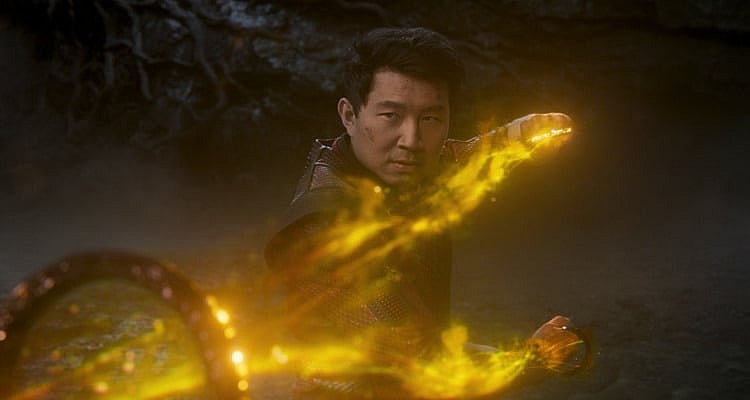
Shang-Chi and the Legend of the Ten Rings is a frustrating experience if you’re a fan of Chinese cinema.
Co-written and directed by Destin Daniel Cretton (Short Term 12) and featuring screenplay contributions from Dave Callaham (Mortal Kombat, Wonder Woman 1984) and Andrew Lanham (The Kid), Shang-Chi has all of the ingredients of what should be a stellar, groundbreaking film in the superhero genre featuring a mostly Chinese and Asian cast, but instead completely drowns out every promising element with over-rendered CGI.
Shang-Chi (Simu Liu), or Shaun as he refers to himself as an adult, has spent the last decade hiding from his father. He lives his life as a supposed slacker, listing away in a dead-end valet job while staying up into the early hours of the morning goofing off with his best friend, Katy (Awkwafina).
However, Shaun’s past is far different from the facade he puts on, as Shaun’s father is actually Xu Wenwu (Tony Leung), a man who is notorious for never being satisfied with the immense amount of power he already has.
Wenwu, known as many names over the course of history – including The Mandarin- has used the ten rings that reside on his forearms to build his own army and generally get whatever he has desired for the past 1,000 years. Eventually, Shaun is soon forced to confront his father while embracing the past he’s tried to hide for so long.
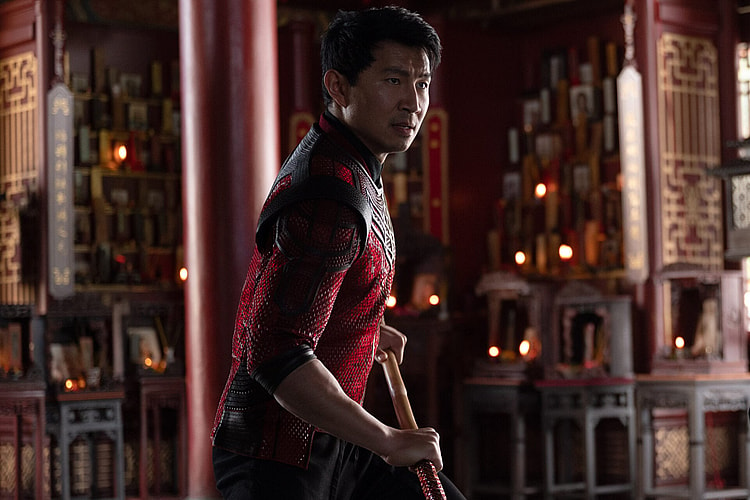
The film is essentially a love letter to wuxia and Asian filmmaking that remains somewhat grounded in reality. The opening of the film, which sees Shaun’s father meet his mother in a sensual action sequence, feels like direct homage to Crouching Tiger, Hidden Dragon (which Shang-Chi star Michelle Yeoh, who plays Ying Nan, previously starred in).
While Shang-Chi mostly revolves around one central relationship with repercussions Shaun deals with his entire life, love plays a key factor throughout the film. Oftentimes, when things are entirely laid out for someone and logic is pounding its chest and screaming for them to do the exact opposite of what their gut is telling them, love perseveres and drives at least one central character to be a stubborn, nonsensical doofus.
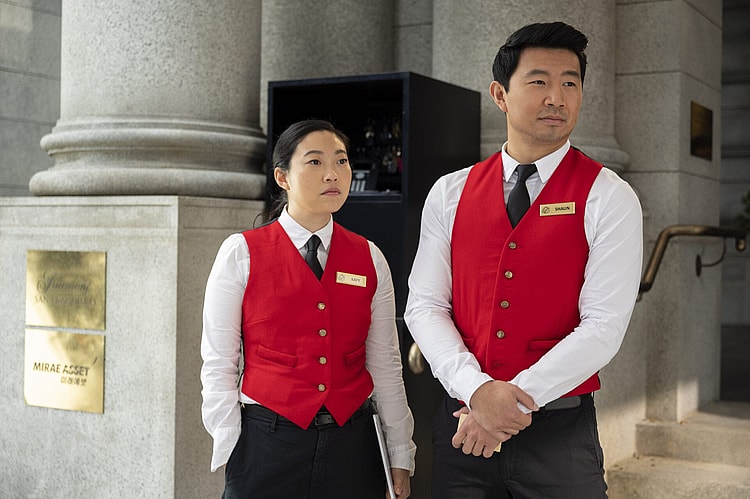
Special effects seem to take a priority in Shang-Chi, but the decision to place so much emphasis on them is questionable at times. While all MCU films boast a gargantuan budget and feature blockbuster visual effects, Shang-Chi seems to kick you out of its visual storytelling more often than not because it relies on CGI like a crutch.
The computer generated imagery isn’t necessarily bad, but there’s so much of it utilized at once that it doesn’t really allow your eyes to focus on any one thing whenever the momentum picks up. The bus fight is the first key action sequence in the film, and though it has some innovative choreography, it tends to get less and less enjoyable the longer it goes on because of the noticeably distracting green screen elements.
Granted, visual effects and CGI are meant to enhance a film’s visuals, but constantly being reminded that certain sequences have no other genuine qualities to them than impressive-looking graphics will leave you will leave you with a sour taste in your mouth instead.
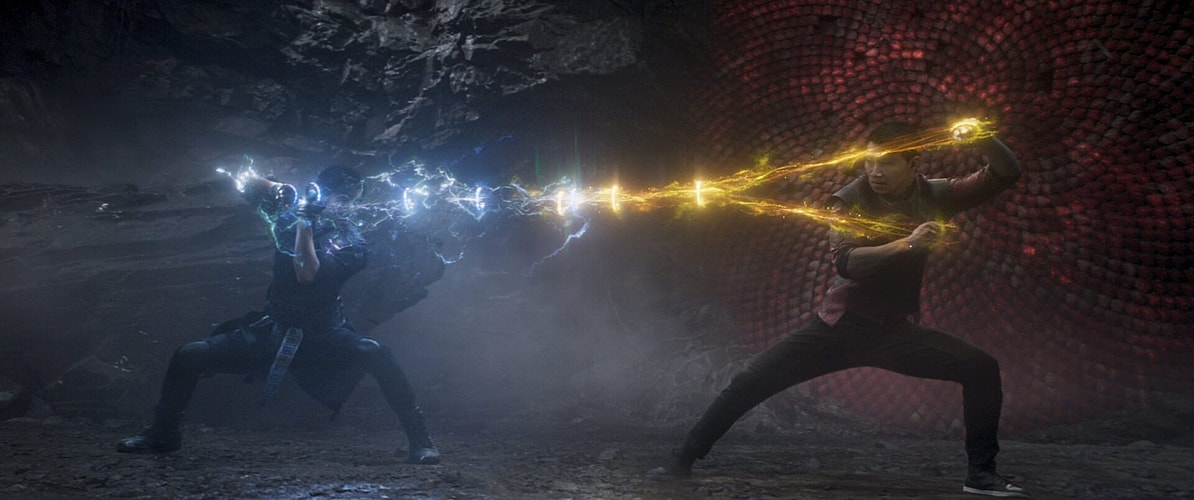
On the flip side, the water map sequence where Wenwu figures out the path to Ta Lo is impressive specifically because of its special effects, as the mystical dimension – especially the animals and creatures that reside there – have this wondrous, Princess Mononoke element to them that could only be executed with competent special effects.
In a film like this, the action should take precedence, not an overload of CGI. In fact, Shaun’s brief fight with Death Dealer at the top of a skyscraper is one of the film’s most memorable solely because it’s just the two of them fighting with little-to-no digital enhancement.
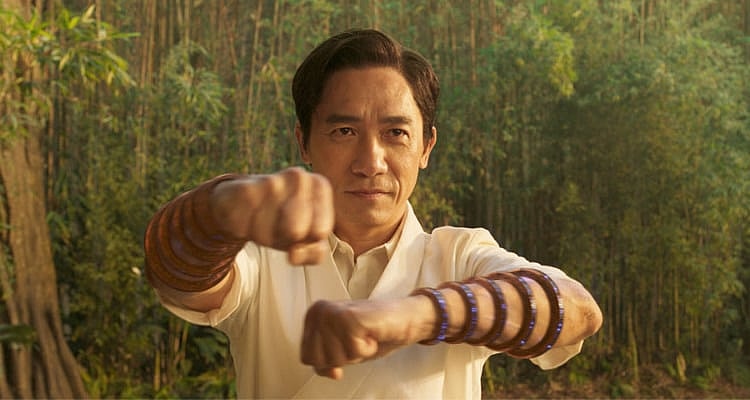
During its finale, Shang-Chi kind of throws everything at the wall and pretty much goes full-CGI, though this production choice once again produces lukewarm results.
While there’s some cool stuff involved in the film’s climax and the kaiju elements seen during the fight are fun, especially with the Chinese dragon battling what’s referred to as a Mega Soul Sucker (which seems to channel Shin Godzilla’s purple atomic breath), the inability for a viewier to fully process what is actually occurring because of over-complicated CGI is tiresome.
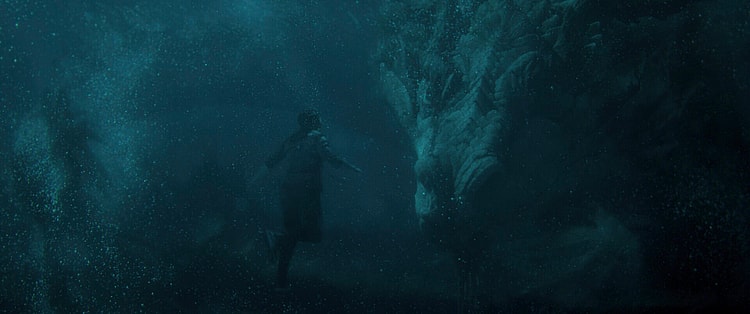
The MCU has always been formulaic, but Shang-Chi feels like it could have been so much more, as the premise is basically ‘a slacker is secretly one of the world’s greatest superheroes’.
Even its various cameos literally lead to nothing. One of the end credit sequences (there are two, for those wondering), sees the appearance of two key Avengers, but all they do is show up and talk.
This is frustrating because this scene acts like it’s going to give Shang-Chi a meaning and purpose that would essentially help the fledgling hero distance himself from his father, only to turn around and squash the idea with a silly joke before it can really go anywhere. Meanwhile, the second end credits sequence is far less interesting.
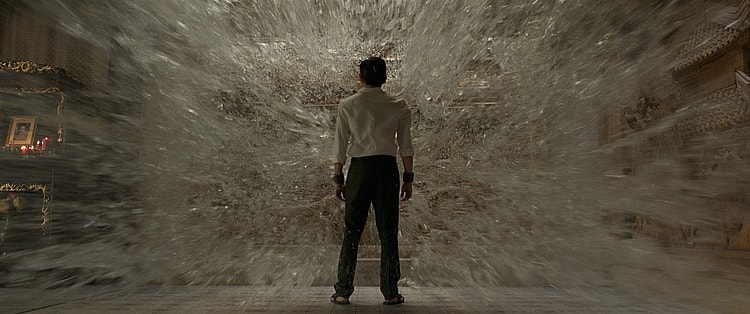
THE VERDICT
Shang-Chi and the Ten Rings isn’t an awful film, but it’s not great either. It’s a mediocre Marvel effort bogged down by its over-usage of expensive special effects.
While Tony Leung is great (and you should absolutely seek out his other films), he doesn’t really stand out here, despite what other people may say. He’s still one of the best things about the film, but is nothing compared to anything else you may have seen him in.
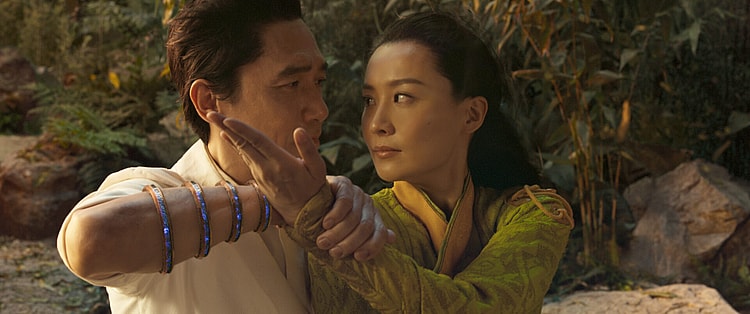
Like the rest of the film, the performances are passable, but aren’t necessarily memorable, extraordinary, or poor.
It’s a shame that Shang-Chi’s strongest assets are the films it’s influenced by, the film career of its main antagonist, and the cameos that total less than five minutes. If you take those three factors away, Shang-Chi is essentially a run-of-the-mill superhero blockbuster that is entirely forgettable.
